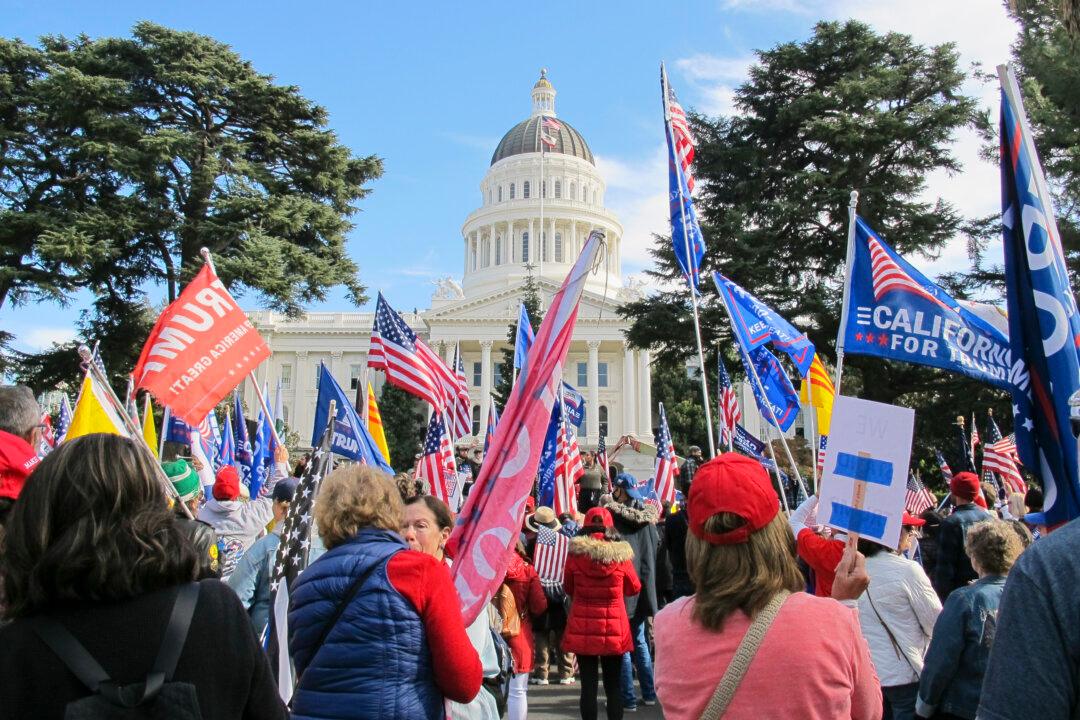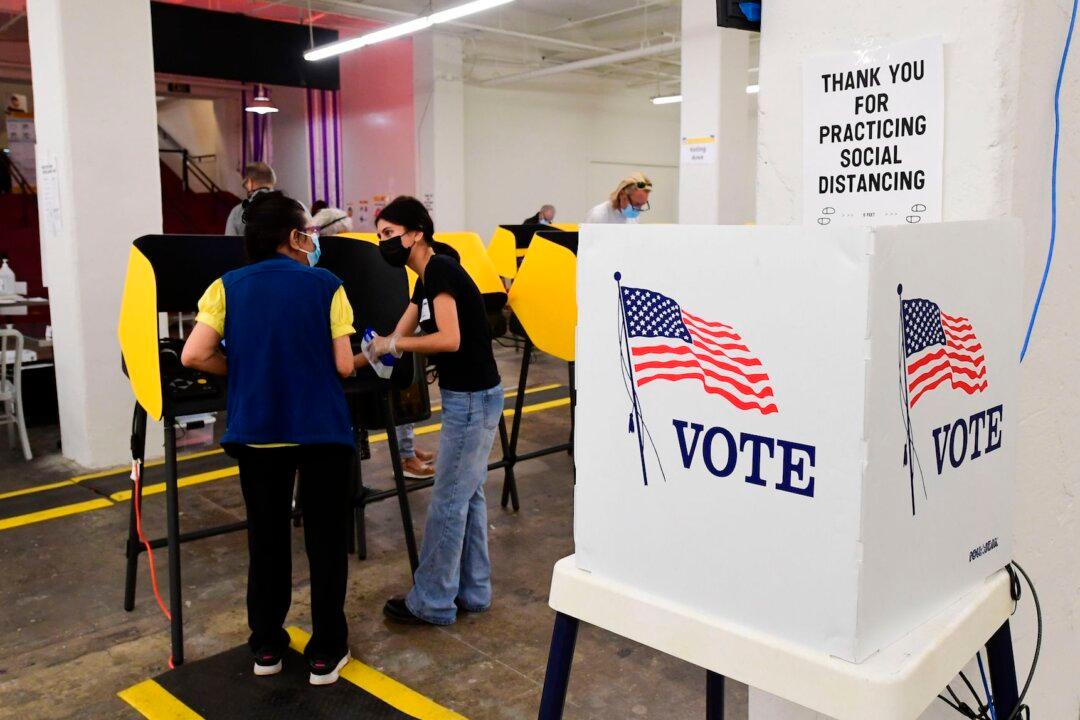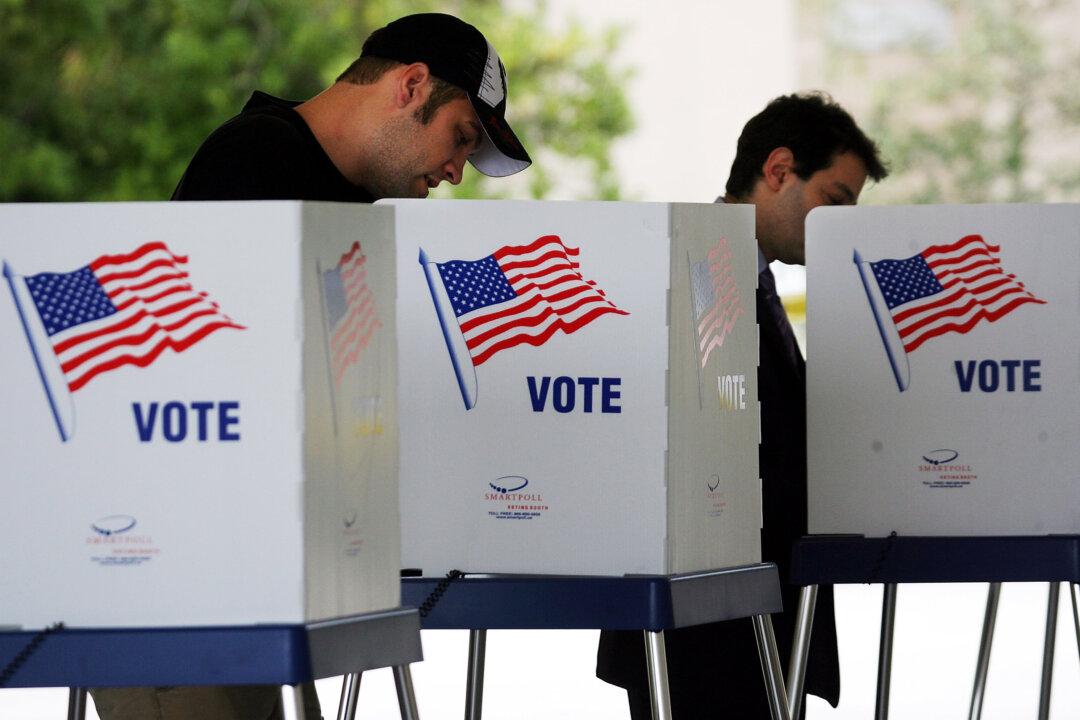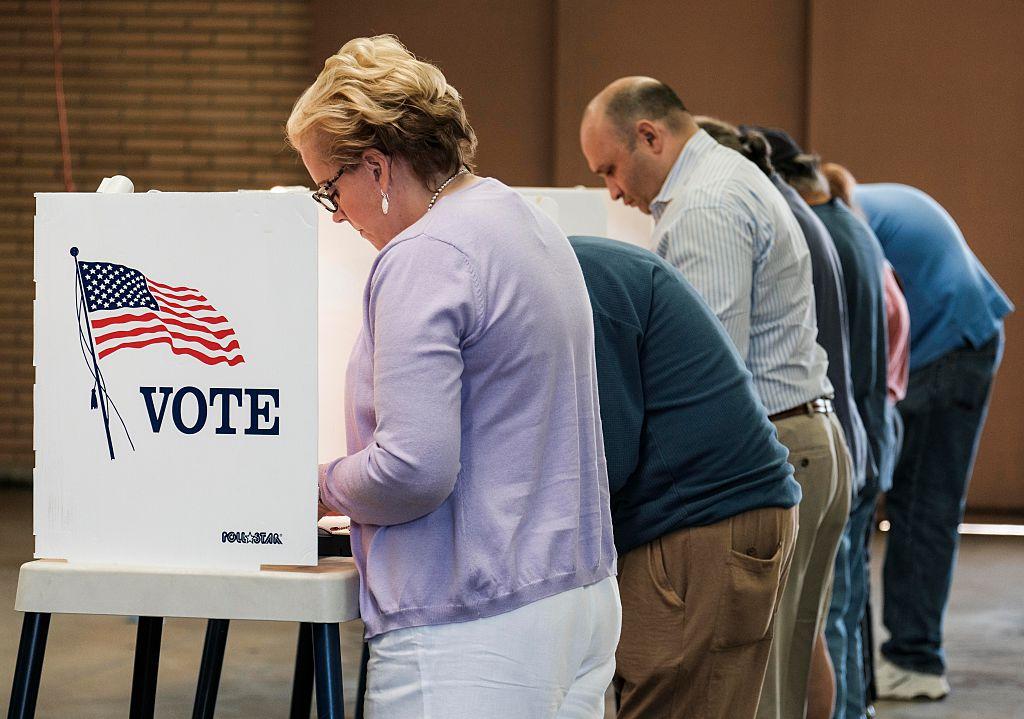Two of the 13 Congressional candidates listed in an Election Integrity Project California lawsuit being filed in the 9th Circuit Court of Appeals spoke at a June 21 election event held in Thousand Oaks and challenged attendees to fight to protect ballot and voting procedures in California.
“What happened in November was fraudulent,” said 35th California district candidate Mike Cargile who is running again for Congress in 2022. “This [election] case is really the most pivotal case in the nation’s history. There is no greater issue in America than election integrity.”



